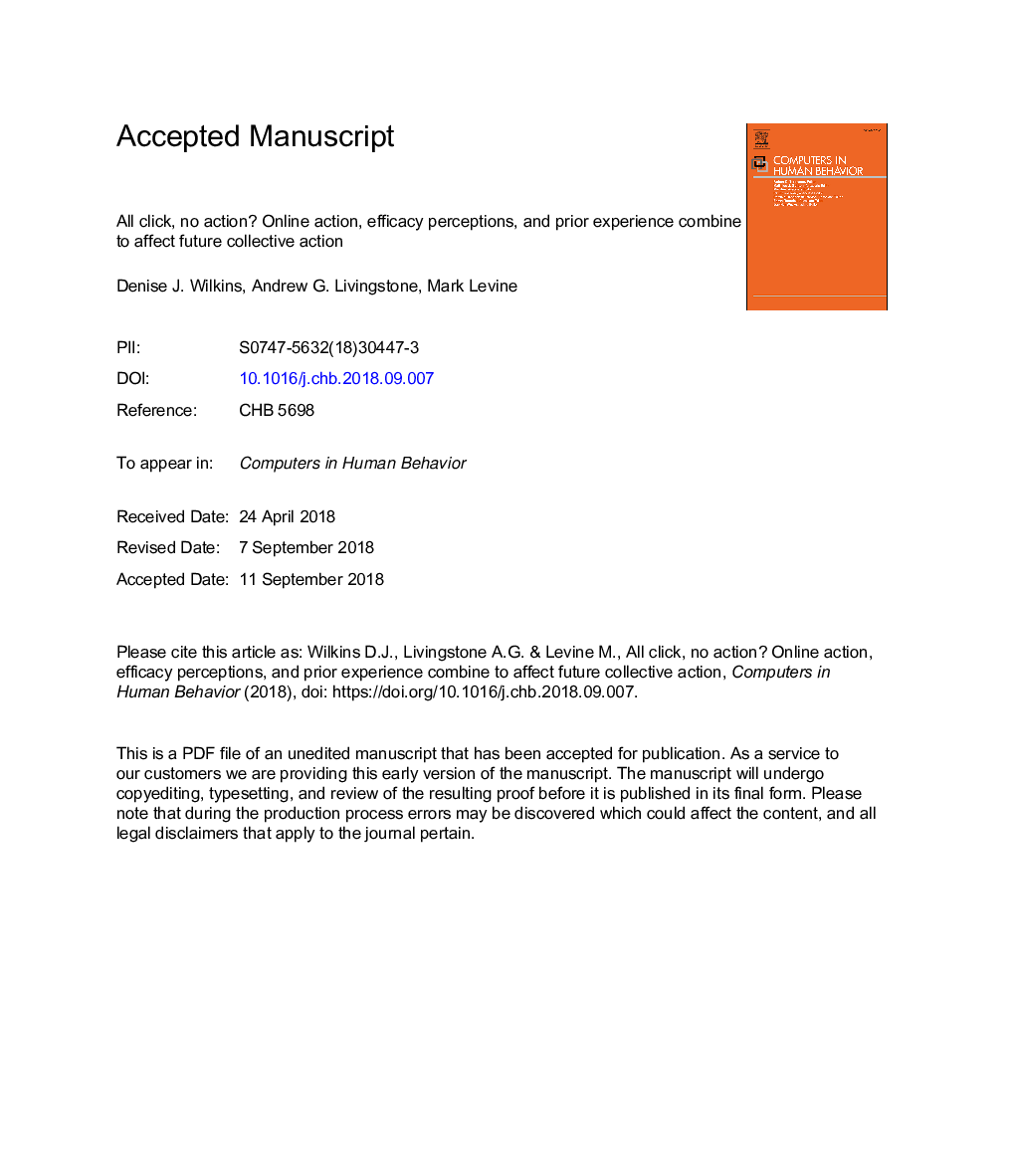| Article ID | Journal | Published Year | Pages | File Type |
|---|---|---|---|---|
| 11024008 | Computers in Human Behavior | 2019 | 41 Pages |
Abstract
Social media is increasingly used for social protest, but does internet-enabled action lead to 'slacktivism' or promote increased activism? We show that the answer to this question depends on prior level of activism, and on beliefs about the effectiveness of individual contribution to the collective campaign. Internet-enabled action was varied quasi-experimentally, with participants (nâ¯=â¯143) choosing whether or not to share a campaign on social media. Participants were then informed that sharing on social media had a big (high action efficacy) or small (low action efficacy) impact on achieving the campaign's goal. Prior levels of activism were measured before the experiment, and general levels of collective action were measured one week after the experiment. Taking internet-enabled action for one campaign increased future activism for other campaigns - but only in individuals who were already active and who perceived their actions to be an effective contribution to the campaign.
Related Topics
Physical Sciences and Engineering
Computer Science
Computer Science Applications
Authors
Denise J. Wilkins, Andrew G. Livingstone, Mark Levine,
